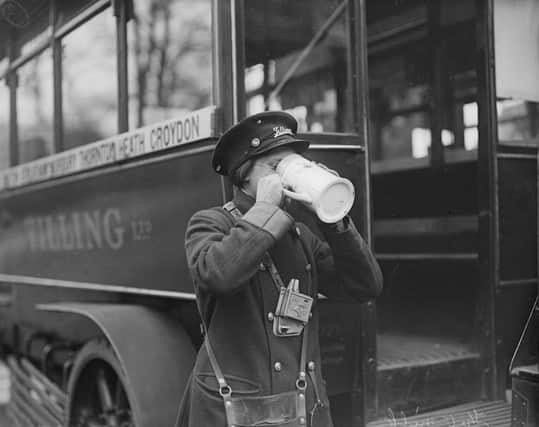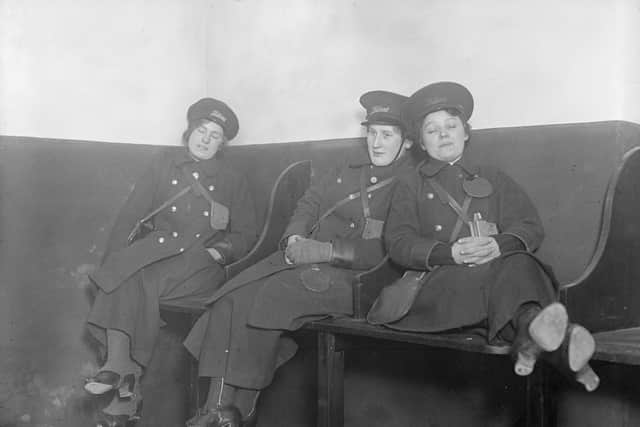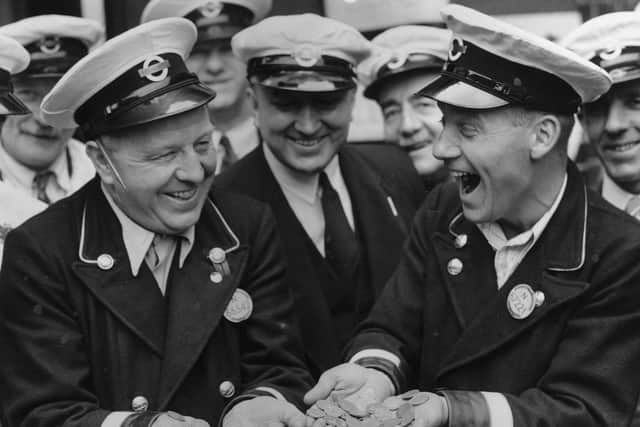The upstairs downstairs life of a bus conductor


“Clippies” were essential to the operation of a double decker bus, since the entrance was nearly always at the opposite end to the driver. And as these pictures from the archive bear witness, the presence of a conductor on every service was a given until well into the 1970s.
Their familiar banter – “plenty of room on top” and “hold very tight, please” – was part of the language, and the comedian Arthur Askey made their standard acknowledgement, “Ay thang yow”, his catchphrase,
Advertisement
Hide AdAdvertisement
Hide AdIt was a job that had its ups and downs, and not just on the staircase. Keeping upright while traversing a moving vehicle was a skill in itself, as was avoiding travel sickness.


It was originally an exclusively male preserve, and although women had been taken on during the two world wars, many thousands were then summarily dismissed to make room for their returning menfolk. Some 1,500 conductresses were sacked in Manchester alone.
Yet a decade later, there were more vacancies than people to fill them, and in London and other large cities, managers looked to the Caribbean for recruits. An exception was Bristol, where an unofficial ban on minority workers led to a widespread bus boycott.
It was the move away from litigation-prone back door buses and towards driver operation that did away with the clippies. Even so, the habit of hopping on and off at will was a hard one to break, and it was not until as recently as 15 years ago that the last regular conductor-operated service, from Marble Arch to Streatham in London, was finally withdrawn.
Advertisement
Hide AdAdvertisement
Hide AdEditor’s note: first and foremost - and rarely have I written down these words with more sincerity - I hope this finds you well.


Almost certainly you are here because you value the quality and the integrity of the journalism produced by The Yorkshire Post’s journalists - almost all of which live alongside you in Yorkshire, spending the wages they earn with Yorkshire businesses - who last year took this title to the industry watchdog’s Most Trusted Newspaper in Britain accolade.
And that is why I must make an urgent request of you: as advertising revenue declines, your support becomes evermore crucial to the maintenance of the journalistic standards expected of The Yorkshire Post. If you can, safely, please buy a paper or take up a subscription. We want to continue to make you proud of Yorkshire’s National Newspaper but we are going to need your help.
Postal subscription copies can be ordered by calling 0330 4030066 or by emailing [email protected]. Vouchers, to be exchanged at retail sales outlets - our newsagents need you, too - can be subscribed to by contacting subscriptions on 0330 1235950 or by visiting www.localsubsplus.co.uk where you should select The Yorkshire Post from the list of titles available.
Advertisement
Hide AdAdvertisement
Hide AdIf you want to help right now, download our tablet app from the App / Play Stores. Every contribution you make helps to provide this county with the best regional journalism in the country.
Sincerely. Thank you.
James Mitchinson, Editor
Comment Guidelines
National World encourages reader discussion on our stories. User feedback, insights and back-and-forth exchanges add a rich layer of context to reporting. Please review our Community Guidelines before commenting.